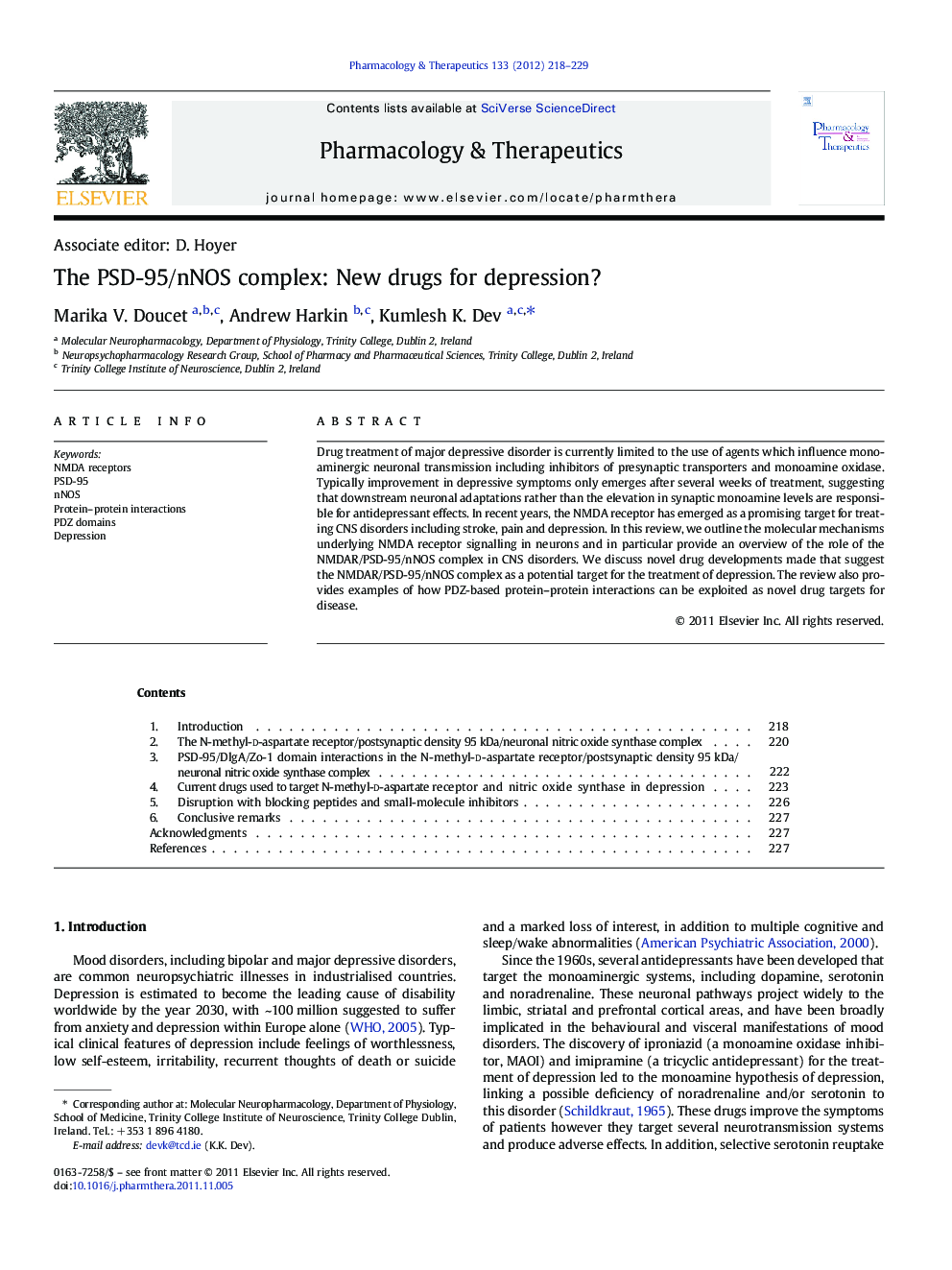| Article ID | Journal | Published Year | Pages | File Type |
|---|---|---|---|---|
| 2563291 | Pharmacology & Therapeutics | 2012 | 12 Pages |
Drug treatment of major depressive disorder is currently limited to the use of agents which influence monoaminergic neuronal transmission including inhibitors of presynaptic transporters and monoamine oxidase. Typically improvement in depressive symptoms only emerges after several weeks of treatment, suggesting that downstream neuronal adaptations rather than the elevation in synaptic monoamine levels are responsible for antidepressant effects. In recent years, the NMDA receptor has emerged as a promising target for treating CNS disorders including stroke, pain and depression. In this review, we outline the molecular mechanisms underlying NMDA receptor signalling in neurons and in particular provide an overview of the role of the NMDAR/PSD-95/nNOS complex in CNS disorders. We discuss novel drug developments made that suggest the NMDAR/PSD-95/nNOS complex as a potential target for the treatment of depression. The review also provides examples of how PDZ-based protein–protein interactions can be exploited as novel drug targets for disease.
